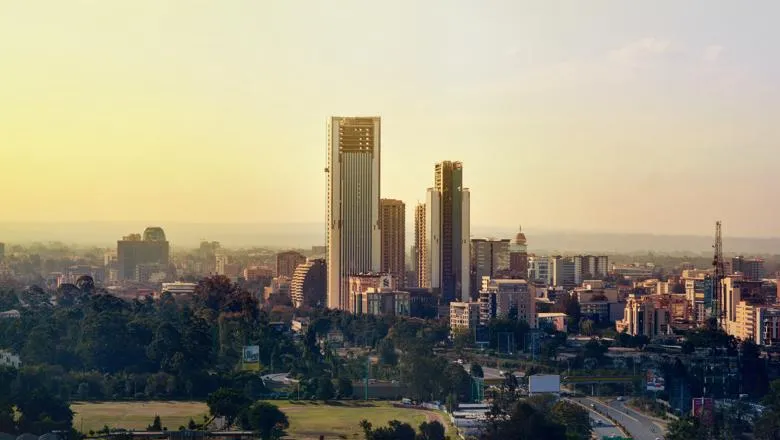08 August 2022
Kenya elections 2022: Five things to look out for
Kenyans will head to the polls on Tuesday (9 August) as the country seeks to elect a new president.

Uhuru Kenyatta, Kenya’s fourth president, is set to retire having served the maximum two terms in office.
While there are four presidential candidates in the elections, the race is widely expected to be between two main candidates; the veteran opposition leader, Raila Odinga, and Kenya’s deputy president William Ruto.
While this will be the fifth occasion in which Mr Odinga has run for presidency, and possibly his last, it will be Mr Ruto’s first attempt with his competitiveness reflecting his focus on mobilising different Kenyan ethnic groups around his economic agenda.
Here, King’s College London academic Dr Fredrick Ajwang, an expert on politics in Kenya, highlights five things we should look out for in the election…
Open and competitive elections
This may yet be the most open and competitive presidential election in Kenya’s multiparty history as the two main presidential candidates, Raila Odinga and William Ruto, are expected to win votes from all the regions except in their rival’s respective ethnic stronghold. That is, all the Kenyan ethnic groups, except the Luo and Kalenjins who are respectively Mr Odinga and Mr Ruto’s ethnic groups, are expected to vote for either of the two candidates with the candidates’ vote share fluctuating from one region to another.
While Mr Odinga and his running mate Martha Karua have pitched their candidacy on tackling the corruption problem in Kenya, William Ruto has promised an economic transformation.
Political messaging
The outcome of the election will reflect which campaign message resonated most with Kenyans.
A Ruto win will communicate that the typical salient political issues in Kenya, around corruption and governance, is somehow fading in the electorate’s list of priorities even as the more topical issue of economic squeeze gains prominence.
Or his win could simply be due to a knee-jerk reaction to the ongoing cost of living crisis, including high food and fuel prices of which Ruto has hedged his campaign on.
Meanwhile a win for Mr Odinga will communicate an understanding among Kenyans that the road to economic freedom is via dealing with the problem of endemic corruption. However, regional dynamics will also determine how people vote, with support by local power brokers being crucial for both candidates.
Turnout crucial to a win
The third key factor is that voter turnout, by supporters of both candidates, could well be decisive for the eventual winner. While recent opinion polls has placed Mr Odinga ahead of Ruto with 47 per cent to Ruto’s 41 per cent, Odinga’s win is not a given, as he has to mobilise his supporters to vote in large numbers. It is for reason that both candidates have shifted their campaign focus in the last two weeks towards voter mobilisation, with Mr Odinga launching his ‘firimbi’ (whistle) campaign to mobilise his supporters while Mr Ruto has embarked on whirlwind campaign of stop-overs targeting his strongholds.
Bursting the youth myth
There is a myth that the power of the ‘youth vote’ will either be proved as correct or incorrect in determining the eventual winner. Around 80 per cent of Kenya's population is younger than 35 and those between 18 and 35 make up 51 per cent of the 19.6 million registered voters. The youth unemployment rate stands at 39 per cent, with the unemployment factor expected to be a key metric in this election. Although younger votes may be a key voting bloc in this election, similar to the 2017, the youth tend to get caught up in the ethnicity trap and it may just be hard for them to vote on policy lines.
Peace at last
This may yet be the most peaceful election in Kenya’s multiparty history as nearly all of Kenya’s past elections have been affected by some form of violence. Crucial to the peace may be Mr Kenyatta’s ambition to leave a ‘clean’ legacy having been propelled into the office in 2013 in the shadow of the 2007 violence through his indictment by the International Criminal Court (ICC) and the follow-up anti-ICC euphoria.
As I write elsewhere, the recent history of the ICC intervention in Kenya, is still fresh in Kenya’s political memory and it may act as a deterrence of large-scale violence, akin to 2007. Also, the demobilisation of politics from the national to local level through devolution, has also dampened the high octane nature of Kenyan elections that tend to lead to violence.
